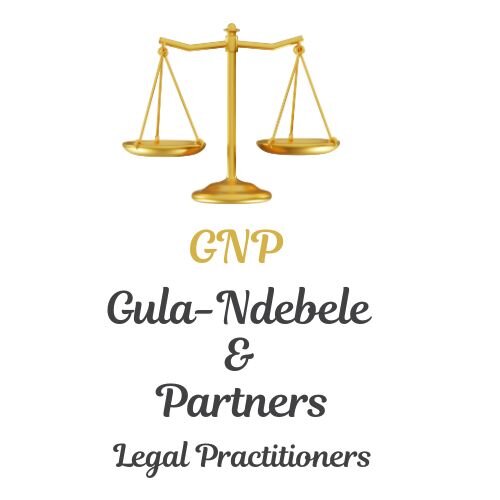Best Estate Planning Lawyers in Zimbabwe
Share your needs with us, get contacted by law firms.
Free. Takes 2 min.
Or refine your search by selecting a city:
List of the best lawyers in Zimbabwe
About Estate Planning Law in Zimbabwe
Estate Planning in Zimbabwe involves the process of organizing and managing an individual's assets to ensure their effective distribution upon death. The main objective is to minimize uncertainties, reduce taxes, and ensure that the financial and personal goals of the individual and his/her family are met. The legal framework governing Estate Planning in Zimbabwe includes various acts like the Wills Act, the Administration of Estates Act, and other statutory provisions that regulate the disposition of property.
Why You May Need a Lawyer
Engaging a lawyer in Estate Planning is advisable in several situations, such as:
- Drafting or updating a valid will to ensure legal enforceability and clarity.
- Setting up trusts to manage the distribution of assets effectively and protect beneficiaries.
- Dealing with complex estates that include business interests, foreign assets, or intricate family dynamics.
- Finding strategies to minimize estate taxes and avoid probate.
- Navigating potential disputes or claims that may arise from family members or creditors.
- Understanding and applying local laws effectively to custom estate plans.
Local Laws Overview
The Estate Planning laws in Zimbabwe are pivotal in regulating how an individual's estate is managed and distributed. Noteworthy aspects of these laws include:
- Wills Act: The primary law regulating the drafting, execution, and validity of wills.
- Administration of Estates Act: This act guides the administration and distribution process of estates, along with handling any related disputes.
- Deceased Estates Succession Act: Governs intestate succession ensuring lawful distribution of estates to next of kin when no valid will exists.
- Family law considerations and their impact on estate distribution, especially in the case of multiple marriages or unions.
- Tax implications involving estate duties and other relevant taxes that may influence Estate Planning strategies.
Frequently Asked Questions
What is included in an estate?
An estate typically includes all the property and assets owned by an individual at the time of death, such as real estate, bank accounts, investments, personal possessions, and business interests.
Is a will necessary?
While not legally mandatory, a will is highly recommended as it specifies how you want your estate distributed, reducing potential disputes and ensuring wishes are carried out.
How can I revoke or amend my will?
You may revoke or amend your will at any time by drafting a new will or a codicil to alter certain provisions, provided you are of sound mind.
What happens if I die without a will?
If you die intestate (without a will), your estate will be distributed in accordance with the Deceased Estates Succession Act, which may not align with your personal wishes.
Can a will be contested in Zimbabwe?
Yes, a will can be contested on grounds such as lack of testamentary capacity, undue influence, or if it does not comply with legal formalities.
What is a living trust?
A living trust is a legal arrangement created during an individual’s lifetime to manage and protect assets for the benefit of beneficiaries, which can also help avoid probate.
Are there any taxes on death in Zimbabwe?
Yes, estate duty and other taxes may be levied on an estate's net value, impacting the amount beneficiaries receive.
Can anyone be an executor of my will?
Any capable adult over 18 years and of sound mind can be chosen as an executor, but it is advisable to select someone with the knowledge and experience or appoint a professional.
How do I appoint a guardian for my children in my estate plan?
You can appoint a guardian for minor children in your will or through a guardianship provision, which details who should take care of your children if both parents are deceased.
Can I include digital assets in my estate plan?
Yes, digital assets such as email accounts, cryptocurrency, or social media profiles can be included in your Estate Planning process with instructions for their management.
Additional Resources
To assist with Estate Planning, consider reaching out to the following resources:
- Zimbabwe Law Society: Offers resources and guides on legal practitioners available for consultation.
- Ministry of Justice, Legal and Parliamentary Affairs: Provides public access to legal materials and publications relevant to Estate Planning.
- Local Bar Associations: Useful for locating qualified attorneys who specialize in estate law and planning.
Next Steps
If you need legal assistance in Estate Planning, consider the following steps:
- Evaluate your estate and outline your goals for distribution and management.
- Seek a reliable and experienced estate lawyer who can help draft necessary legal documents.
- Maintain updated records of all assets and ensure your wishes are clearly documented.
- Discuss your plans with family members and beneficiaries to avoid future disputes.
- Regularly review and update your estate plan to accommodate any life changes or law amendments.
Lawzana helps you find the best lawyers and law firms in Zimbabwe through a curated and pre-screened list of qualified legal professionals. Our platform offers rankings and detailed profiles of attorneys and law firms, allowing you to compare based on practice areas, including Estate Planning, experience, and client feedback.
Each profile includes a description of the firm's areas of practice, client reviews, team members and partners, year of establishment, spoken languages, office locations, contact information, social media presence, and any published articles or resources. Most firms on our platform speak English and are experienced in both local and international legal matters.
Get a quote from top-rated law firms in Zimbabwe — quickly, securely, and without unnecessary hassle.
Disclaimer:
The information provided on this page is for general informational purposes only and does not constitute legal advice. While we strive to ensure the accuracy and relevance of the content, legal information may change over time, and interpretations of the law can vary. You should always consult with a qualified legal professional for advice specific to your situation.
We disclaim all liability for actions taken or not taken based on the content of this page. If you believe any information is incorrect or outdated, please contact us, and we will review and update it where appropriate.
Browse estate planning law firms by city in Zimbabwe
Refine your search by selecting a city.
















